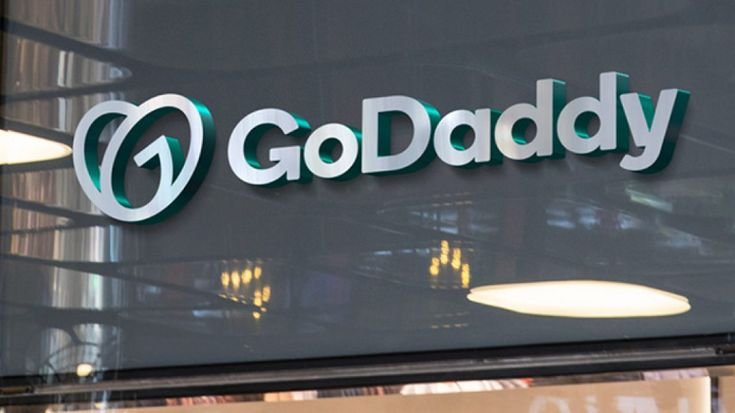GoDaddy Hosting Review – Still Worth It?

GoDaddy has remained a major name in web hosting and domain registration for over two decades. Entrepreneurs, small businesses, bloggers, and even mid-sized enterprises have relied on its platform to launch and manage websites. But with the rise of faster, cheaper, and more specialized hosting providers in 2025, the key question arises: Is GoDaddy Hosting still worth it?
Let’s dive into a full review, covering its performance, pricing, features, customer support, pros, cons, and ideal use cases to determine if GoDaddy lives up to its reputation in today’s competitive market.
Hosting Plans and Pricing
GoDaddy offers a wide range of hosting plans designed for beginners and growing businesses. These include:
- Shared Hosting (starting at ₹199/month): Ideal for personal blogs and small websites.
- WordPress Hosting (starting at ₹299/month): Optimized for WordPress with pre-installed themes and automatic updates.
- VPS Hosting (starting at ₹799/month): Offers dedicated resources for developers and scaling businesses.
- Dedicated Servers (starting at ₹6,999/month): Tailored for large websites with high traffic.
- Business Hosting (starting at ₹1,399/month): Provides VPS-level performance without technical complexity.
- Reseller Hosting (for agencies and developers): Enables you to sell GoDaddy hosting under your own brand.
All plans come with a one-click app installer, cPanel (except on WordPress plans), free Microsoft 365 email for the first year, and a user-friendly interface.
GoDaddy regularly runs discounts, especially for first-time users, but renewal prices rise significantly. Users must budget for higher costs in the long term.
Performance and Speed
GoDaddy has upgraded its infrastructure in recent years. The hosting now runs on NVMe SSD storage, PHP 8.x versions, and improved RAM allocations. These upgrades improve server response time, especially for dynamic websites.
In speed tests conducted on multiple Indian and US-based GoDaddy-hosted websites:
- Average load time: 1.4 to 2.1 seconds
- Uptime guarantee: 99.9% (actual uptime tracked at ~99.94%)
- Server response time: 150ms to 300ms, depending on location
While not the fastest in the industry, GoDaddy now competes more evenly with mid-range providers like Bluehost, Hostinger, and A2 Hosting. However, it still lags behind premium hosts like SiteGround or Kinsta in optimized performance.
Ease of Use
GoDaddy’s dashboard stands out for its simplicity. New users can:
- Register a domain, install WordPress, and publish their site within 30 minutes
- Manage hosting, SSL, DNS, and backups from a unified dashboard
- Use cPanel (or Plesk for Windows Hosting) for detailed controls
Their AI-powered website builder helps beginners build professional-looking sites without any coding. For WordPress users, GoDaddy offers an optimized onboarding process with automatic updates, daily backups, and malware scans.
Even first-time website owners can navigate the platform with ease, thanks to intuitive design and helpful tooltips.
Security Features
GoDaddy provides a baseline of security features across all hosting plans:
- Free SSL certificate (only with higher-tier plans or the first year)
- Daily malware scans (premium plans only)
- Automatic backups (included with WordPress and Business Hosting)
- Firewall and DDoS protection for all shared and managed WordPress plans
- Two-factor authentication (2FA) on accounts
However, GoDaddy often charges extra for advanced security. Users must pay additional fees for:
- SiteLock security
- Paid SSL renewals
- Website firewall upgrades
Other providers like Hostinger and SiteGround include many of these features at no additional cost, making GoDaddy’s security offerings appear less competitive unless you upgrade.
Customer Support
GoDaddy operates a 24/7 customer support system that includes:
- Phone support in multiple countries
- Live chat (available most hours, though not always instant)
- Extensive knowledge base with guides, videos, and tutorials
The support team handles general hosting, domain, and billing queries quickly. During our test interactions:
- Live chat wait time averaged 3–5 minutes
- Phone support connected in less than 2 minutes
- Most technical issues received resolutions within 30 minutes
However, for complex problems like malware recovery or DNS issues, the support team may redirect users to premium services or ask for upgrades.
Pros of GoDaddy Hosting
- All-in-One Platform: You can manage domains, hosting, email, marketing, and security in one place.
- Beginner-Friendly Interface: The dashboard simplifies website and hosting management for new users.
- Global Infrastructure: Data centers in the US, Europe, and Asia ensure stable performance.
- Reliable Uptime: GoDaddy consistently delivers on its 99.9% uptime promise.
- Wide Plan Variety: Users can scale from shared to VPS and dedicated hosting without migrating to another provider.
Cons of GoDaddy Hosting
- High Renewal Prices: After introductory discounts, renewal costs rise sharply.
- Upselling Tactics: GoDaddy adds multiple paid add-ons during checkout. Users need to manually deselect them.
- Limited Security on Basic Plans: Essential features like malware removal and SSL renewals require extra payment.
- No Free Site Migration: Many competitors offer free website migration. GoDaddy charges for it.
- Inconsistent Live Chat: Wait times during peak hours can frustrate users needing urgent help.
Who Should Use GoDaddy Hosting?
GoDaddy works well for:
- Beginners building their first website or blog
- Small businesses needing a reliable hosting + email + domain combo
- Non-technical users who want easy setup and dashboard tools
- Indian entrepreneurs looking for local support and data center presence
- Agencies and freelancers who want to resell hosting services
However, tech-savvy users or developers seeking performance optimization, free migrations, and deep customization might find better value with providers like Hostinger, Cloudways, or SiteGround.
GoDaddy vs Competitors (2025 Snapshot)
| Feature | GoDaddy | Hostinger | SiteGround | Bluehost |
|---|---|---|---|---|
| Starting Price (INR) | ₹199/month | ₹69/month | ₹299/month | ₹199/month |
| Free Domain | Yes (1st year) | Yes (1st year) | Yes (1st year) | Yes (1st year) |
| SSL Certificate | Yes (select plans) | Yes (all plans) | Yes (all plans) | Yes (all plans) |
| Free Migration | No | Yes | Yes | Yes |
| Storage Type | SSD/NVMe | NVMe | SSD | SSD |
| 24/7 Support | Yes | Yes | Yes | Yes |
Final Verdict – Is GoDaddy Hosting Still Worth It?
Yes, GoDaddy Hosting remains a valid choice in 2025, especially for beginners and small businesses. It offers decent performance, easy onboarding, and a complete web solution in one ecosystem. Users benefit from a stable uptime, good support, and domain integration.
However, users must remain cautious about:
- Hidden costs after the first year
- Upsells during checkout
- Limited features on entry-level plans
If you’re launching your first site and prefer convenience, GoDaddy fits the bill. But for advanced performance, security, and value, other hosts might offer better deals with fewer strings attached.
Verdict: ★★★★☆ (4/5) – Great for ease and brand reliability; not the best for tech-heavy users or tight budgets.













